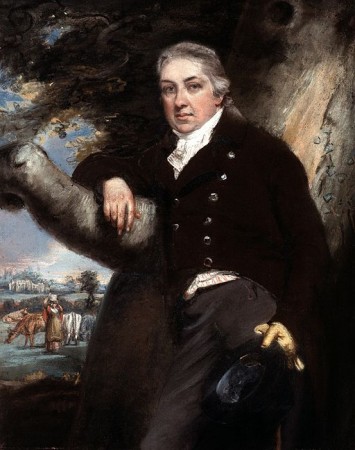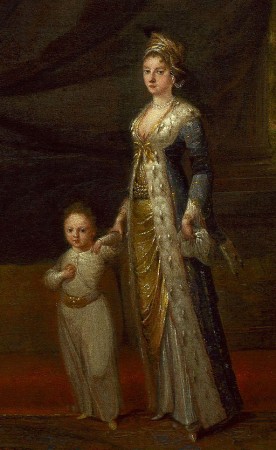Most people are familiar with the name Edward Jenner (1749 – 1823), a country doctor whose smallpox inoculation led to that dreaded disease’s eventual eradication. Jenner became intrigued by the fact that milkmaids who had contracted coxpox, similar to smallpox but much less serious, seemed immune to smallpox. He experimented with inoculating people with cowpox particles taken from the hand of a milkmaid, and found that they developed a mild case of the disease but were left immune to smallpox. In 1798 he published his findings, and by 1800 his vaccination had spread rapidly throughout Europe and the Americas, and it was considered by many to be the greatest medical achievement of the Enlightenment.
But health practitioners in Africa, China, India, and Turkey had been practicing a form of smallpox inoculation (called variolation) for centuries. The procedure involved taking fresh material from smallpox pustules and scratching it into the skin of a healthy person (or blowing it up the nostrils). It exposed patients to a significant risk of contracting the disease, but still had a major statistical advantage over doing nothing.
Enter Lady Mary Wortley Montagu (1689 – 1782), my new favorite Lady of the Enlightenment. She was the person who first introduced the smallpox inoculation procedure to England, decades before Jenner’s discovery. Married to the British Ambassador to the Turkish Court, she made friends with many Turkish people, learned their language, wore Turkish dress, and observed their customs—most notably, their practice of variolation. She had had smallpox herself, and her face was quite scarred. Her brother had died of it.
She had her own six year old son Edward variolated in the Turkish manner by an old woman with a rusty needle, and then later, when back in England during a smallpox epidemic in 1721, she had her four year old daughter inoculated. The method impressed the (initially skeptical) physicians who witnessed it.
In response to the public outrage at this dangerous, sinful, “Oriental” practice, Lady Mary published “A Plain Account of the Inoculating of the Small Pox.” She even persuaded the Princess of Wales to inoculate her daughter (though not her sons—that was too risky).
Lady Mary also gained fame for a public spat with her former friend, Alexander Pope. It’s unclear what the quarrel was about—he might have declared his love for her and she may or may not have laughed in his face. Not easy to do, considering he was probably not taller than four foot six. Still, she was a woman unafraid to speak her mind, and way ahead of her time.

